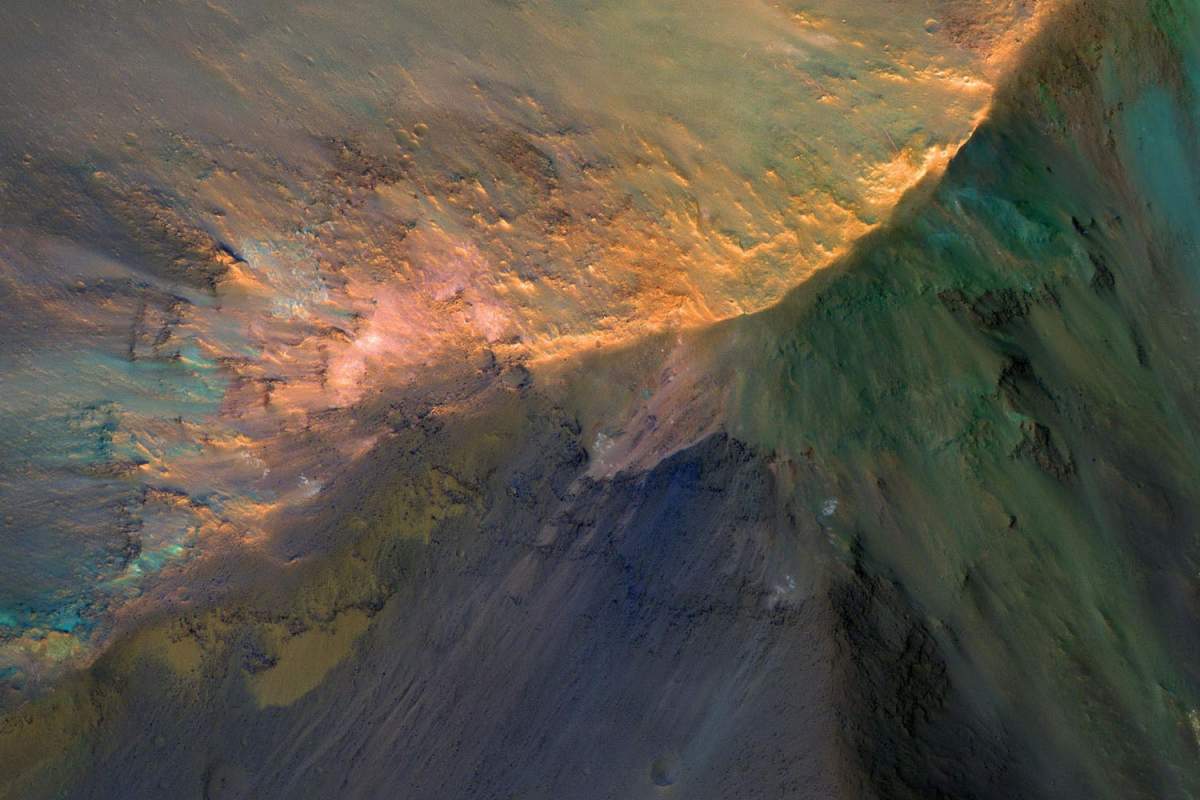
Spacecraft have found evidence that there used to be bodies of liquid water on Mars billions of years ago; ponds, rivers, and maybe even oceans.
Instability
Liquid water isn't stable on Mars. Most would freeze into ice because the average surface temperature is about eighty degrees Fahrenheit below zero.
Temperatures in the equatorial regions sometimes do rise above freezing, but even then, ice would generally turn directly into vapor because Mars's atmosphere is a hundred times thinner than Earth's.
Scientists think that Mars's atmosphere was once thicker. A thicker atmosphere would have trapped more of the sun's heat, and allowed water to remain liquid on a warmer Mars.
Where Did The Air Go?
NASA launched a spacecraft called MAVEN to orbit Mars and study how its atmosphere interacts with solar radiation. Researchers found that, even today, the Martian atmosphere is gradually being stripped away by a wind of charged particles from the sun.
About sixty-five percent of the gas argon that was ever present in the atmosphere has vanished.
Since argon is chemically inert (a general, basic definition of chemically inert means that it's an element that rarely has chemical reactions), it can't have been taken from the atmosphere by chemistry at the Martian surface, and must have been lost to space.
Mars is less massive than Earth, so its gravity is weaker. But that's not the only reason why its losing its atmosphere.
Magnetic Fields
The main difference is Earth is protected by a strong magnetic field, but Mars's field is much weaker. As of three point eight billion years ago, Mars had already lost much of its atmosphere.
Since primitive Earth had similar conditions and had, by then, given rise to life, it's possible that Mars did, too. But if that did happen, the theoretical life on Mars had a much harder surviving because of Mars' environment.
Sources And Further Reading:
- NASA. "NASA Mission Reveals Speed of Solar Wind Stripping Martian Atmosphere." November 5, 2015. Accessed July 19, 2017.
- B. M. Jakosky, M. Slipski, M. Benna, P. Mahaffy, M. Elrod, R. Yelle, S. Stone, N. Alsaeed. Mars' atmospheric history derived from upper-atmosphere measurements of 38 Ar/ 36 Ar. Science, 2017; 355 (6332): 1408 DOI: 10.1126/science.aai7721
- University of Colorado at Boulder. "Solar wind stripped Martian atmosphere away." ScienceDaily. (accessed July 19, 2017)
- Wall, Mike. "Mars Lost Atmosphere to Space as Life Took Hold on Earth" Space.com. November 5, 2015. Accessed July 19, 2017.









